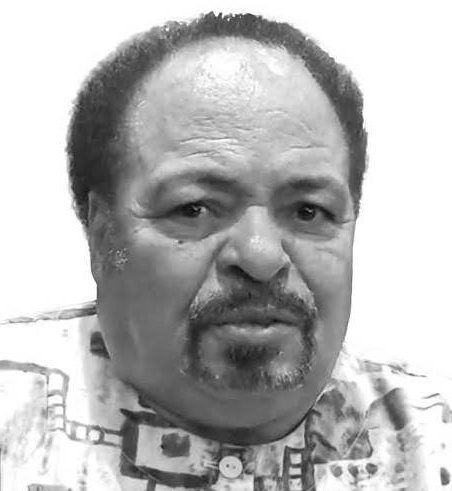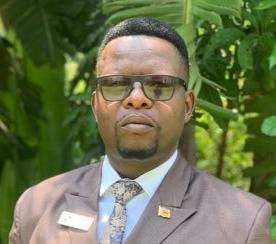‘Any win by ZANU-PF is a death sentence for its citizens, and will contribute to a deteriorating outlook for the region’
Derek Davey
In Zimbabwe, the pursuit of rule by law, instead of the rule of law, has bedevilled this year’s elections, even before citizens cast their votes on 23 August 2023. The state has passed several laws including the Patriotic Bill, the Public Order and Security Act (POSA), and the Private Voluntary Organisations (PVO) Act, which at their core seek to narrow democratic space and limit civil liberties and human rights for the citizens of that country.
In a webinar hosted by Good Governance Africa (GGA) in partnership with the Mail & Guardian, pre-election conditions were analysed. On the back of GGA’s international CEO Chris Maroleng being kicked out of the country, webinar participants discussed the implications of this kind of event ahead of key elections. They also analysed the structural conditions characterising the political economy of the country, which raise questions about the ability of the country to truly hold free, fair and credible elections.
 Chris Maroleng
Chris Maroleng
There was a general consensus among the participants that this year’s elections are unlikely to result in any real change, due to the conditions that exist in Zimbabwe, which are not democratic by any stretch of the imagination; the elections are only there to legitimise the ZANU-PF regime. Using “democratic” institutions like elections to advance authoritarian “legitimacy” has increasingly become part of the autocrats’ global playbook. The SADC, described as a “lame duck”, is also unlikely to challenge the regime or object to how the election is conducted. However, the panellists felt that as the economy is at a point of collapse, and deep divisions exist within the ruling party, some kind of change is becoming inevitable in the country.
Dr Ross Harvey, Director of Research and Programmes at the GGA, opened proceedings for the webinar. He described the pre-election living conditions for Zimbabwean citizens as “sub-optimal”, with unemployment at 90% and “terrible” infrastructure conditions. Harvey introduced the three panellists, who each intervened with five-minute opening remarks.
Opening remarks
Zimbabwean academic, author, publisher and director of the Southern Africa Political Economy Series (SAPES), Dr Ibbo Mandaza, said that he wished to interrogate the conditions of “democracy” in Zimbabwe before the elections. The criteria for free and fair elections are well known, but the present arbiters keep lowering the bar because “this is Zimbabwe” — this is fundamentally racist. People queue up to vote but find at the end of the day that their votes have been disregarded, which angers me intensely, said Mandaza.
People still believe their votes determine the next government, but sadly, this will not be. Africans must begin to interrogate these things called “elections”. In Zimbabwe, elections are only there to legitimise the ruling regime. There is essentially no difference between rigging an election and a coup, which means that we have had a series of coups since 2000, with one “real” coup in 2017, which was not constitutional. This will continue unless there is an exposure of the rigging of this election, which will render it null and void, Mandaza said.
Author and academic Dr Feddious Mutenheri said there is much pessimism in Zimbabwe regarding the election, as the only election that ever ushered in a new government was the first one, held in 1980. The closest we came to change after that was in 2008, when Morgan Tsvangirai beat Robert Mugabe, but without the requisite percentage to take power.
 Dr Ibbo Mandaza
Dr Ibbo Mandaza
The present administration was changed in 2017 via a coup, as indicated by Dr Mandaza, which makes it difficult to fathom that elections work as a vehicle of change of government in Zimbabwe. However, elections are still very important.
Dr Mutenheri also asked some difficult questions: What have the regional countries and SADC put into place to ensure there are measures for the elections, which, if not observed, would make them null and void? Is the SADC ready to challenge President Emmerson Mnangagwa? Is it ready to ask him difficult questions? Is their mission willing to declare the election unfree and unfair? There were several dubious processes leading up to the election; have these been taken into account by external observers who only arrived in the country shortly before the election itself? Will the SADC hold Mnangagwa to account? The Wednesday election will be a test case for the region, said Mutenheri.
Maroleng said his approach — and that of the GGA — concerns governance. Many post-colonial states are still grappling with how to restore governance in their countries. Governance is about the authoritative allocation of resources, about who gets what, when and how. What we have increasingly seen in states like Zimbabwe is that resource allocation has been distorted in favour of the ruling elites, not the citizens. When governance has not been practised with people in mind, it is not trusted.
Most African states enjoy the display of democratic processes like elections, but elections are not preceded by sound democratic practices. When the 2017 coup occurred, most people were happy because Robert Mugabe was displaced, but what happened was unconstitutional, and heralded unfortunate changes that were not democratic — and appear to have made life for citizens even worse than they were before.
“If we treat elections as a panacea, in a structural situation that is not democratic, then we have failed to really see what is in front of us,” said Maroleng. We need alternative mechanisms to produce democratic outcomes in elections, within the executive, the legislative and judiciary structures and the media. These reforms can be the only cure, not the election, which will manifest an illegitimate outcome, and, most likely, more violence. People should go out and vote, but they cannot expect a truly democratic outcome.
Harvey echoed Maroleng’s sentiments and said that there must be a separation of powers between the executive, the legislative and judiciary, and a fully free media for a true democracy to exist and function. He asked Mutenheri what defines a free, fair and credible election.
Mutenheri said the SADC guidelines were expected to be adopted by its member states. The principles include establishing an independent and impartial electoral body to monitor the elections, staffed by qualified citizens. There are questions about Zimbabwe’s electoral body, which contains relatives of ZANU-PF officials, who are highly interested parties. Mutenheri detailed the relationships in astonishing detail. Another principle is that the state is supposed to safeguard civil liberties such as the freedom to campaign and access the media, but Zimbabwe’s state institutions have made it very difficult for the opposition to exercise these rights. There have been complaints of harassment from the opposition, and the judiciary colludes in this harassment by either delaying or subverting justice.
 Dr Feddious Mutenheri
Dr Feddious Mutenheri
Another SADC guideline is that resources should be available for the democratic process to be fulfilled, but corruption hampers this, and most resources go towards ZANU-PF. The opposition is viewed as an enemy, as “terrorists”, or as unwanted elements. Nelson Chamisa of the opposition party Citizens’ Coalition For Change (CCC) has escaped attempts on his life, and at times has been unable to access his electorate. The voter’s roll has not been published, so the opposition parties are not sure of their constituencies, and although this matter was taken to court, the roll has still not been released.
The state must provide a neutral judiciary, but this is questionable in Zimbabwe. There was, for instance, a recent court case where 12 CCC representatives were banned, and the party has been fighting to ensure that they can stand — this consumes time and resources that would otherwise have been allocated to proper campaigning under “normal” conditions. Under such circumstances, we cannot expect the elections to create meaningful change, but still, if people do vote in numbers, it will be difficult for ZANU-PF to subvert their will, said Mutenheri.
Harvey said that ZANU-PF may have created difficult conditions for people to vote under, but asked Dr Mandaza about divisions within the party and what kind of effect these might have.
Mandaza said that most of the dynamics of change in Zimbabwe have been triggered by events within the ruling party itself. The coup indicated an advanced state of disintegration within the ruling party and the state, which have become irrevocably conflated under ZANU-PF and showed how factionalised the party was. The outcome of the coup was that one faction lost. The fissure between Mnangagwa and Vice-President Constantino Chiwenga is real, and they each used each other to institute the coup and get to where they are now.
Mnangagwa has since run the state through a system of cronyism and tribalism, so the other ethnic groups have mobilised against him, which is why he lost many provinces in the last election. “The divisions within ZANU-PF are fatal, and one will see in these elections a big discrepancy between the parliamentary vote and the presidential vote,” said Mandaza, adding that if the results had not been “cooked” in the 2018 elections, Mnangagwa would have lost.
Harvey asked what reforms could be implemented in Zimbabwe for free and fair elections?
Mandaza said what is required is constitutionalism, rule of law, separation of powers, an accountable executive, a vibrant legislature, and a fiercely independent judiciary. Moreover, the military has to go back to the barracks.
Harvey asked what mechanisms might usher in these fundamental changes. Mandaza replied that he is meeting with observers and former heads of state, who are moving towards a conference that will create a coalition government, which will reflect Zimbabwe’s political players and civic society generally. “South Africa must be party to this process, and this is something I brought up in my recent article in the Sunday Times,” said Mandaza. The South Africans have hitherto been slow to act, but may be starting to get the message.
He said that the Zimbabwean question has never been resolved without regional and international participation. Britain was pressurised by Zimbabwe’s neighbours into the 1979 Lancaster House Agreement. SAPES believes that South Africa will do nothing unless it is put under pressure, so Mandaza indicated that he would be meeting with the British, the US, China and other countries to create this pressure. If South Africa is reluctant, “let us try for SADC, but the way it operates almost always precludes intervention in its states”. Ramaphosa has a very laid-back attitude towards Zimbabwe, he added.
 Dr Ross Harvey
Dr Ross Harvey
“The liberation movements have long ago served their purpose, and the war veterans are no longer a factor in today’s politics. Unlike South Africa, Zimbabwe is on the eve of a new dispensation, and the international conference that is pending should reflect that,” remarked Mandaza.
Harvey agreed that “natural attrition” (in Mandaza’s word) is what seems to dislodge liberation movements, rather than democratic elections. Maroleng said it is interesting that ZANU-PF may be in its last phase, but will the party reform itself out of power? Will the conference make ZANU consider accepting reforms and resign from power? “They will need very strong incentives to do so, and will likely rather keep using force to maintain power,” said Maroleng, adding that ZANU-PF seems to be fragmenting along the lines of the personalities in the party.
Mutenheri said Zimbabwe is at a point of change, just like in 2008. The Afrobarometer indicates a possible victory by the CCC. “Zimbabwe is moving towards change, but ZANU-PF is no pushover, and their rigging mechanisms are in motion as we speak. There is always a need in Zim to bring in international influence, but SADC needs to step up and bring this problem child to heel. The region cannot again bury its head in the sand, as it has always done. There is a need for an intervention of sorts, but are there people in the region with the guts to really make the necessary changes?” asked Mutenheri.
ANC Secretary-General Fikile Mbalula has taken us back to the Mbeki days of “hear no evil, see no evil” and propaganda such as “this is regime change from the West”. Ramaphosa doesn’t seem to have the appetite or moral standing to even question ZANU-PF, and South Africa is the biggest trading partner in the region. Zambia presents an avenue of change, and this election may be a test for President Hakainde Hichilema. There has to be a change in Zimbabwe because of the financial crisis there; the economy has totally collapsed. Any win by ZANU-PF is a death sentence for its citizens, added Mutenheri, and will contribute to a deteriorating outlook for the region.
Closing remarks
Mandaza said that SADC only exists in name; it is a lame duck. Reaching out to SADC is a waste of time. The state has imploded in Zimbabwe; it is very divided. The people want a decent administration. We have come to an end-game.
Maroleng concurred, saying that an unconstitutional change of power took place when the coup occurred, so hoping for democratic change through an election is unrealistic. However, there is hope because there are positive change agents within the state, who do appear to care for real governance. “We call on them to push for change, as citizens of Africa who care for the people in Zimbabwe. True patriotism is sometimes to express dissent, and not to accept the sad state that exists in the country today. We do not want revenge; we care deeply about Zimbabwe. Without a strong Zimbabwe, there is no strong Southern Africa. The GGA advocates for good governance, and calls on Zimbabweans to vote with good conscience, and to not resort to violence.”
Harvey concluded by saying that the hope of GGA is to see an independent judiciary, an executive held to account, a legislature willing to speak truth to power, a free media and civil society, a state that respects a state of civil liberty and rule of law, and governance in the interest of all citizens.